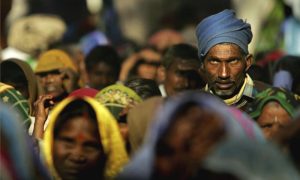DHAKA, Bangladesh: A relentless heatwave is wreaking havoc across South and Southeast Asia, affecting millions with its blistering temperatures and extreme weather conditions. April witnessed record-breaking temperatures, triggering wildfires, disrupting daily life, and tragically claiming lives due to heat-related illnesses.
The scorching conditions are attributed to the waning impact of the 2023–2024 El Niño event, which began in July 2023.
Bangladesh, in particular, has borne the brunt of the heatwave, with April 2024 marking the hottest month since 1948. Average temperatures soared between 40–42 degrees Celsius (104–107.6 degrees Fahrenheit) across 80 percent of the country, accompanied by a stark absence of rainfall. The government responded by closing government schools, affecting 33 million students, while those with better resources shifted to online learning. Tragically, over 10 deaths attributed to heatstroke were reported within a week.
The wildfires raging in the Sundarbans Reserve Forest, the world’s largest mangrove forest, stand as a grim testament to the severity of the situation in Bangladesh. With inadequate firefighting resources, efforts to contain the fires have been hampered, posing a grave threat to the forest’s rich biodiversity.
In India, prolonged heatwaves have disrupted normal life, resulting in over nine fatalities across the country. Unprecedented temperatures, reaching seven to eight degrees above the normal average, have been recorded in states like West Bengal, Odisha, and Kerala. The ongoing general elections have also been affected by the extreme heat, further exacerbating the challenges faced by citizens.
Nepal, too, grapples with soaring temperatures and rampant wildfires, with the Southern region experiencing temperatures exceeding 40 degrees Celsius. The number of wildfires reported this year has nearly doubled compared to the previous year, posing significant health hazards and environmental risks.
Sri Lanka is not spared from the heatwave, with the Department of Meteorology issuing extreme caution alerts in northern regions. High temperatures prevail across the country, intensifying concerns about health and safety.
As the heatwave persists, urgent measures are needed to mitigate its impact and safeguard vulnerable populations from its adverse effects.

























